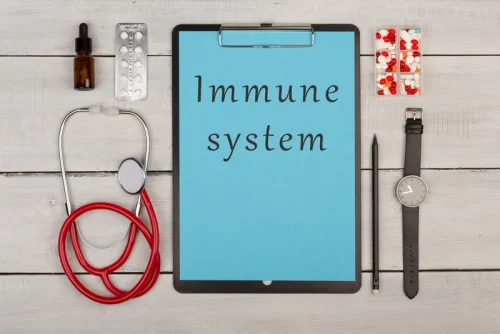
Alcoholic beverages are usually considered empty calories. Beer, wine, and spirits don’t contain any nutrients, so they either add calories to the diet without any benefits or replace food or drink that do contain nutrients. The inner lining of the stomach can become irritated (called gastropathy) or inflamed (called gastritis).
Could Having ALDH2 Deficiency Offer Unexpected Heart Protection?
Those with an intolerance to wine may react to certain ingredients found in wine, including histamines, sulfites, and tannins. They may experience a variety of symptoms on the skin, in the respiratory system, and in the digestive system. As mentioned, a true allergy to alcohol is extremely rare, though cases of skin reactions have happened.
- The immune system overreacts to this exposure in the body, treating alcohol as a threat.
- Some people find that when they drink alcohol, they experience sneezing and nasal congestion.
- By Elizabeth PrattPratt is a freelance medical and mental health journalist with a master’s degree in health communication.
- Avoiding alcohol is the only sure way to prevent an alcohol-related reaction.
- If you’ve ever wondered – why does my face get red when I drink – this could be why.
Enjoy drinking again and get Sunset Alcohol Flush Support for33% off while stocks last!

But what about if you feel funny while you’re still mid-drink? It could be a sign that you actually have an allergy, or an intolerance. You see, as we age, our bodies produce less of an important enzyme called alcohol dehydrogenase (ADH). This enzyme plays a key role in breaking down alcohol in your system, turning it into a less toxic substance for your body to process more easily. When ADH levels drop, as they often do with age, alcohol lingers in your bloodstream longer. This can make the toxic effects of alcohol stronger and last longer, even if you’re drinking the same amount you always have.

Who Is at Risk of Nonallergic Rhinitis?
For example, I have a friend who loves beer but always feels sick after drinking it. Turns out, he has a gluten sensitivity and was reacting to the wheat! Once he switched to gluten-free beers, he felt much better. All of these symptoms are your body’s way of telling you that something has changed. Recognising them is the first step in figuring out what’s causing the sudden intolerance and how you can manage it moving forward. If you’re interested, we go into further detail about these symptoms in our more general article about alcohol intolerance.

Mixing alcoholic drinks with carbonated beverages (soda or seltzer) could also result in excess gas. Some people believe that a reaction to histamine causes symptoms after drinking red wine. Histamine is made during the production process of fermentation. Sulfites are an ingredient used to make beverages and foods last longer. They are found in a number of products, including wine and beer.
Sulfites intolerance
The only way to prevent these uncomfortable reactions is to avoid alcohol. When there is actual irritation in the stomach from drinking, bloating or other symptoms might last longer. Drinking alcoholic beverages every day may extend the acute effects and continue the cycle of symptoms. These sugar alcohols sneezing after drinking alcohol are not fully digestible, so they pass into the colon, where they may be fermented by the bacteria there, which may lead to bloating. Low-calorie alcoholic drinks or beverages may contain sugar alcohols. Sudden alcohol intolerance can catch you off guard and potentially ruin a great night out.
- Sulfites, histamines, and tannins are among some of the substances believed to contribute to a wine intolerance.
- An intervention from loved ones can help some people recognize and accept that they need professional help.
- Allergy testing is the only way to formally diagnose allergies.
- If you’re allergic to another ingredient contained in certain alcoholic products, switching to a different drink might be an option.
Symptoms of Sudden Alcohol Intolerance
- Quercetin is a plant pigment that has been shown to cause sneezing in some people.
- For instance, the nerve endings in the nose might react to triggers too easily.
- Alcoholic drinks high in sulphites and/or histamine include wine (red, white, rosé and sparkling), cider and beer.
A food allergy is your immune system’s response to a food protein that the body sees as harmful. Allergic reactions that involve hives, wheezing, and chest pain can occur almost immediately. They should be considered severe and potentially life-threatening. If you experience these symptoms, you should seek https://ecosoberhouse.com/ immediate medical attention. If someone believes they have an alcohol allergy or intolerance, they should stop drinking alcoholic drinks and visit their healthcare provider for testing and advice. An allergy to wine is believed to be rare, though an intolerance to wine that impacts roughly 10% of people.
Find more top doctors on
If you’re allergic to any of the ingredients in a mixed drink, you may want to avoid it. Problems in the immune system cause an alcohol allergy to develop, while genetic problems in the digestive system tend to cause alcohol intolerance. These problems make it difficult for the body to break down alcohol properly. If your symptoms are very mild, you may have a food sensitivity rather than a true allergy. It can be uncomfortable, but it’s not an immune system response and isn’t as serious. If someone has a true allergy to alcohol, they should avoid the substance entirely.


